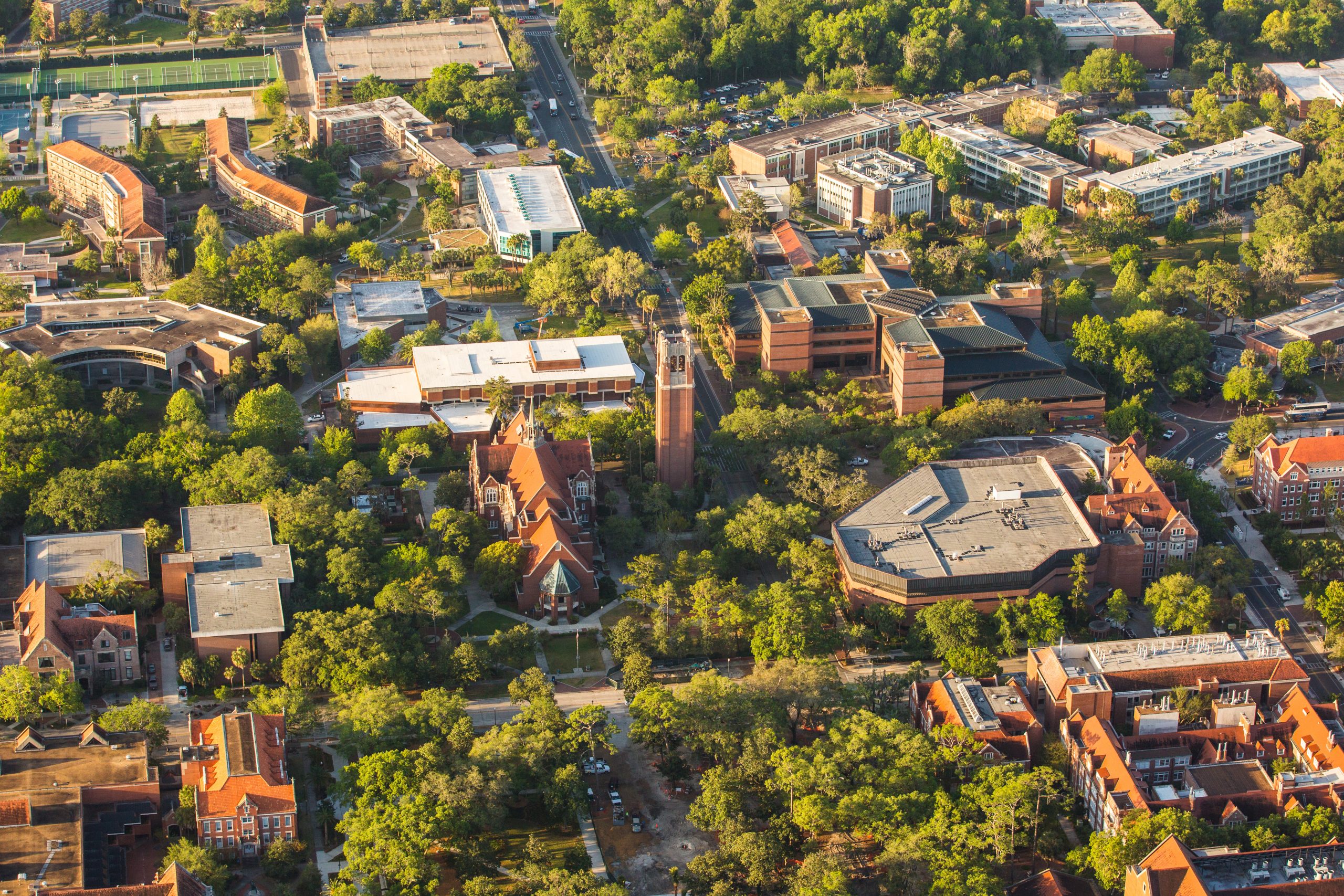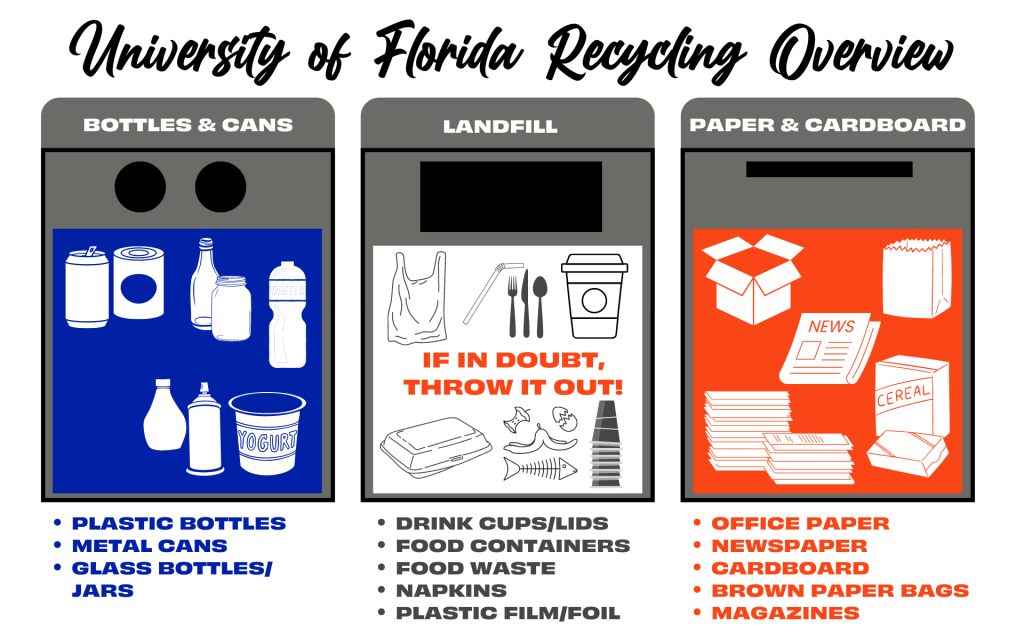
Waste
waste
The UF Office of Sustainability and Facilities Services work together to assess the UF waste stream and implement comprehensive waste reduction and recycling programs. Innovative programs are in place across campus operations to reduce, divert and recycle waste.
Compost is organic matter – such as food scraps and compostable materials – that has decomposed over time and with the help of heat and microorganisms, and can be recycled as a nutrient-rich fertilizer and soil amendment.
By composting food waste and organic materials, UF is reducing the amount of trash being hauled to the landfill while helping to create new, beneficial soil amendments for use in residential or commercial settings!
Personal Compost Options
History of Compost at UF
- 2013: UF piloted a composting program through a partnership with Waste Corporation of America (WCA) and Watson’s C&D.
- 2014: Composting program expanded to include the collection of pre- and post-consumer materials from Fresh Food Company and Gator Corner Dining Center.
- 2017: UF launched a pilot program to collect paper towel waste for compost and this program has continued to expand into several buildings campus-wide.
UF’s recycling program is managed by Facilities Services, who facilitate the collection of paper, corrugated cardboard, scrap metal, wooden pallets, concrete, masonry, yard waste and other materials as well as the expansion of recycling receptacles on campus.
From paper and aluminum to ink cartridges, electronic waste and furniture, UF has developed a comprehensive guide to help you discover what can – and can’t – be recycled on campus!

Electronics (e-waste) contain many harmful chemicals and components that can damage the environment and lead to harm to humans and animals if disposed of improperly.
To prevent this, UF policy requires that all electronics purchased for campus use are safely disposed of through UF Surplus/Asset Management.
Options For Recycling Personal E-Waste
- Drop off at the Alachua County Households Hazardous Waste Collection Center at the Leveda Brown Environmental Park.
- For homes serviced by the City of Gainesville Residential Curbside Program, you can request an appointment for the collection of larger electronics.
- Select electronic stores and retailers may accept small electronic devices for recycling such as computers, laptops, tablets, and cell phones. Examples include Best Buy, Staples, Apple, Google, and Samsung – we recommend that you call ahead or check online to confirm current policies, as these types of programs frequently change.
- If your electronics are still in working condition, you may consider donating them to a local non-profit organization, educational/arts program, thrift store, resale store, etc.
The most impactful thing you can do on a personal level to address waste is to reduce your general consumption habits.
At UF, the following waste reduction programs are in place:
